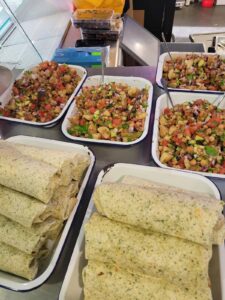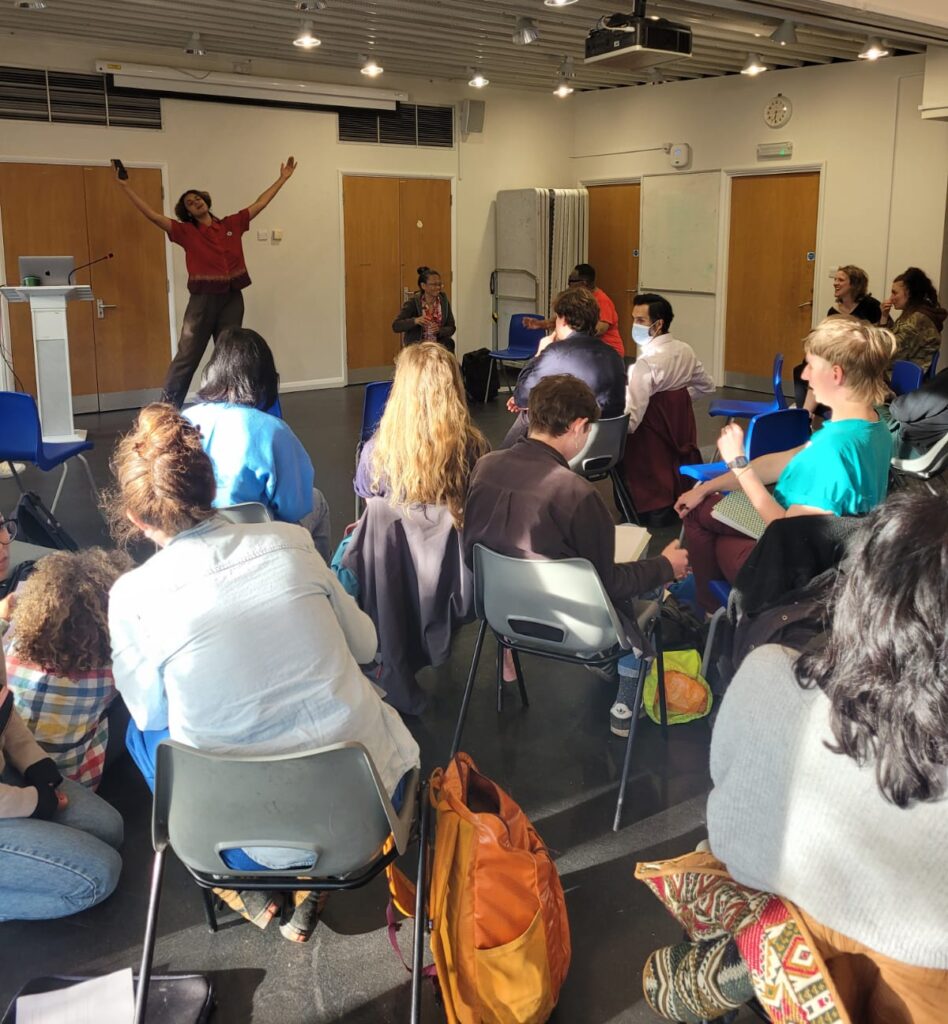Platform and the Blueprint Architects organised a co-learning and networking event in Spring 2022. We heard from two inspirational women pioneering alternative food models for our food system.
DEE WOOD AND GRANVILLE COMMUNITY KITCHEN
Granville Community Kitchen is a truly collective community venture, made up of a community garden, kitchen, and a solidarity vegetable box scheme.
 They also had a food aid service, which when the pandemic hit, went from supporting 50 households to 300 households. To make it possible to meet demand they had to take food from what Dee described as ‘the charitable industrialised food system’, which didn’t sit right with their values.
They also had a food aid service, which when the pandemic hit, went from supporting 50 households to 300 households. To make it possible to meet demand they had to take food from what Dee described as ‘the charitable industrialised food system’, which didn’t sit right with their values.
Dee’s questions for Granville Community Kitchen were – ‘Can we grow the food ourselves or connect to farms? Or if not, can we access food from global markets in a just and sustainable way?’. With support from Landworkers Alliance and Better Food Traders they made direct connections to farms, and started working with the African and Caribbean Food Network on how they could set up just and sustainable food chains internationally. This month, they are hoping to sign for a farm on the outskirts of West London.
Dee talked about the alternative systems that have fed us throughout history – through solidarity, exchange, community to community. She also stressed the importance of thinking holistically. Food insecurity is a symptom of poverty that needs to be solved through a progressive welfare system, which includes better wages, better social security, all of which we don’t currently have.
Granville Community Kitchen are committed to decreasing reliance on temporary charitable food provision, and last year closed their emergency food aid service, more about this here.

ROKIAH, LEAP MICRO AD
LEAP specialises in micro anaerobic digestion (AD) and has built an urban circular food model that could help communities manage their food waste more sustainably and grow food for local consumption.
Rokiah explained how AD works, where it happens and what it produces. Micro AD turns food waste into biogas, a renewable source of energy, which could be used to power a community kitchen! It also produces a liquid fertilizer ( digestate), which can be used in hydroponics. LEAP combines AD with composting to produce valuable soil organic matter to support soil health and fertility.
Currently some of our food waste from London goes out to Oxfordshire to be processed. Instead LEAP wants to create a more localised circular system, which combines on-site food waste management with food production. They’ve been largely running on grant funding but are now looking to scale up their economically sustainable model – SOURCE – across three sites in Tower Hamlets, Hackney and Newham to create local green jobs.
A current Tower Hamlets case study is on the Teviot Estate in Poplar, read more here.
